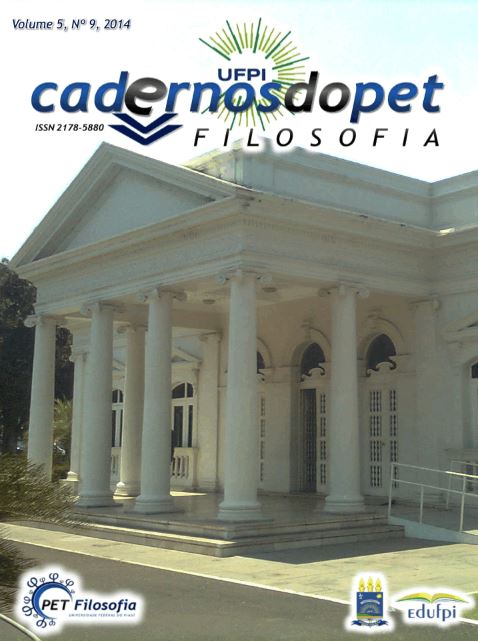EPISTEMOLOGIA DO TESTEMUNHO: CRÍTICAS À REFUTAÇÃO DO REDUCIONISMO LOCAL QUANTO AO DESEMPENHO JUSTIFICACIONAL DO TESTEMUNHO
Conteúdo do artigo principal
Resumo
A epistemologia do testemunho tem reacendido forte interesse entre a classe dos atuais epistemólogos. Tem sido redescoberta a sua indispensabilidade epistêmica e reassumida a posição de que o testemunho é uma fonte de crenças penetrante e natural, no qual muitas das crenças nele fundamentadas constituem conhecimento e estão justificadas. Reducionistas e antirreducionistas se alternam, repetidamente, para explicar o papel epistêmico do testemunho na justificação da crença testemunhal, gerando um acirrado debate na epistemologia contemporânea. Advogada do Reducionismo local, Elizabeth Fricker refuta a relevância da justificação com base no testemunho para crença testemunhal. Com base nisso, este artigo propõe apresentar algumas críticas aos argumentos de refutação reducionista de Fricker quanto à possibilidade epistêmica do testemunho.
Detalhes do artigo
Referências
AUDI, Robert. (1997). The Place of Testimony in the Fabric of Knowledge and Justification. In: American Philosophical Quarterly, v. 34, n. 4, p. 405-422. Oct/97.
. (1998). Epistemology: A contemporary Introduction to the Theory of Knowledge. London: Routledge.
. (2004). The Good in the Right: A Theory of Intuition and Intrinsic Value. Princeton: Princeton University Press.
ALSTON, William P. (1989). Epistemic Justification: Essays in the Theory of Knowledge. New York: Cornell University Press.
BURGE, Tyler (1993). Content Preservation. In: The Philosophical Review, v. 102, n. 4, p.457- 488. Oct/93.
CASULLO, Albert. (2005). Epistemic Overdetermination and A Priori Justification. In: Philosophical Perspectives, v. 19, n. 1, p. 41-58. Dec/05.
COADY, Charles A. J. (1973). Testimony and Observation. In: American Philosophical Quarterly, v. 10, n. 2, p. 149-155.
. (1992). Testimony: A Philosophical Study. Oxford: Clarendon Press.
De ALMEIDA, Cláudio. (2013). Testimony and Paradox. In: BLED EPISTEMOLOGY CONFERENCE. Slovenia. Jun/13. 21 p.
DRETSKE, Fred. (2000). Perception, Knowledge and Bilief: Selected Essays. New York: Cambridge University Press.
DUMMETT, Michael. (1994). Testimony and Memory. In: MATILAL, B. K. & CHAKRABARTI, A. (eds.) Knowing from Words. Dordrecht: Kluwer Academic Publishers, p. 251-272.
FAULKNER, Paul. (1998). David Hume’s Reductionist Epistemology of Testimony. In: Pacific Philosophical Quarterly, v. 79, n. 4, p. 302-313.
. (2000). The Social Character of Testimonial Knowledge. In: Journal of Philosophy, v. 97, n. 11, p. 581-601.
FOLEY, Richard. (1994). Egoism in Epistemology. In: SCHMITT, F. (ed.) Socializing Epistemology: The Social Dimensions of Knowledge. Lanham, MD: Rowman & Littlefield, p. 53–73.
. (2002). Theories of Justification. In: MOSER, K. (ed.). The Oxford Handbook of Epistemology. N. York: Oxford University Press, p. 204-233.

